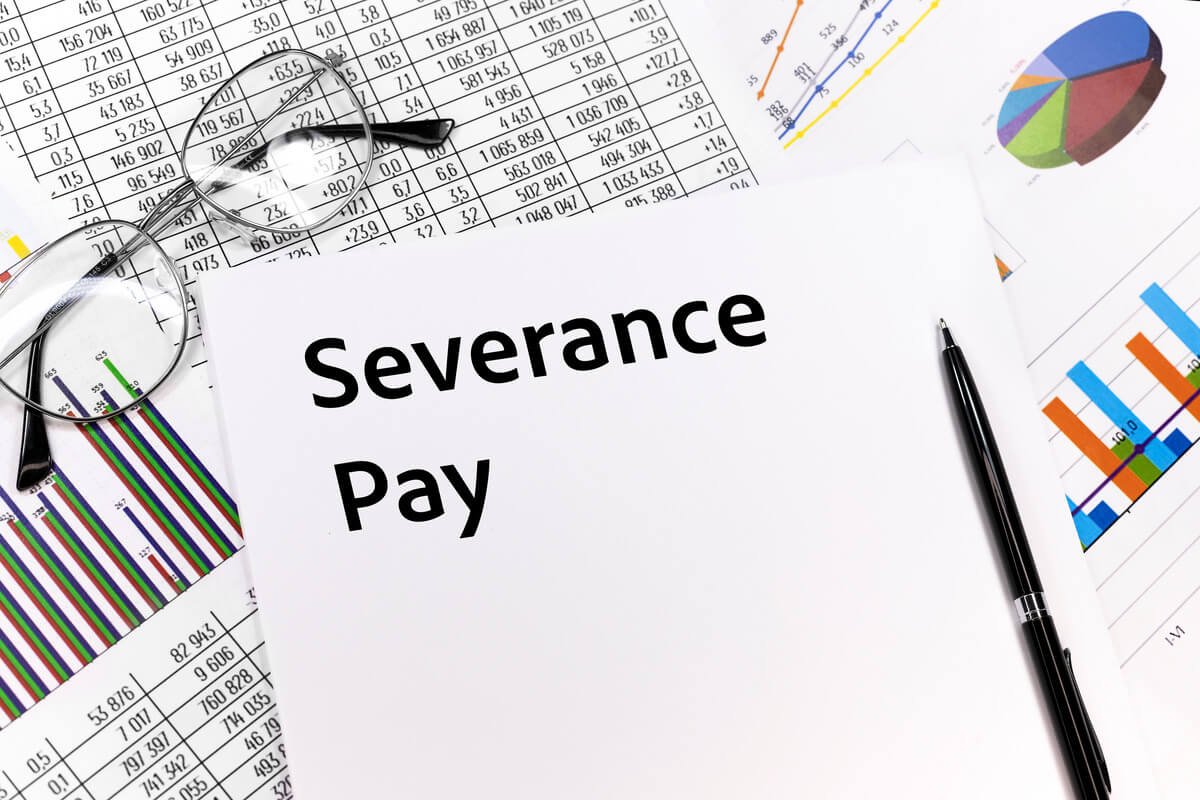
If you lose your job in Germany—whether by resignation, dismissal, or mutual agreement—you may be entitled to unemployment benefits (Arbeitslosengeld I). However, under certain circumstances, the German Employment Agency (Agentur für Arbeit) can impose a blocking period, temporarily suspending your access to those benefits. This blocking period (Sperrzeit) can last up to 12 weeks, which means three months without financial support—even if you’ve paid into unemployment insurance for years. It’s a legal mechanism designed to penalize avoidable unemployment. This article explains what the blocking period for unemployment benefits in Germany is, when it applies, how to avoid it, and what you can do if you’re affected.
Calculate your severance pay in minutes
Find out your potential severance pay based on your individual situation
Content
- 1. What Is a Blocking Period?
- 2. When Does the Blocking Period Apply?
- 3. How Long Is the Blocking Period?
- 4. Consequences of a Blocking Period
- 5. Can You Avoid the Blocking Period?
- 6. What If the Blocking Period Is Unfair?
- 7. Important Deadlines
- 8. Special Notes for Expats and Foreign Employees
- 9. Tips to Prevent the Blocking Period
- Conclusion
1. What Is a Blocking Period?
A blocking period is a legally defined time during which the Federal Employment Agency denies or suspends unemployment benefits after you become unemployed.
📌 It typically lasts between 1 and 12 weeks, depending on the reason for the job loss.
The purpose of the blocking period is to discourage employees from voluntarily causing unemployment or from failing to cooperate with job placement efforts.
2. When Does the Blocking Period Apply?
The blocking period for unemployment benefits is imposed in the following situations:
✅ Voluntary Resignation
If you quit your job without good cause, you may face a 12-week blocking period.
Exceptions include:
- Verified health reasons
- Relocation due to marriage or family
- Serious conflicts or harassment at work (with documentation)
- Employer’s violation of contract
📌 The burden of proof is on you, not the employer.
✅ Signing a Settlement or Termination Agreement
If you agree to end your employment via:
- Settlement agreement (Abwicklungsvertrag)
- Mutual termination agreement (Aufhebungsvertrag)
…you may face a blocking period unless you had compelling reasons (e.g. avoiding dismissal, severance offer, etc.).
💡 To avoid the blocking period:
- The termination must be due to operational reasons
- The severance must follow the standard formula 0.5 × monthly salary × years of service
- The notice period must be observed in full
Free initial consultation with a lawyer
Request a free consultation and receive a callback within 1–2 hours.
✅ Misconduct or Dismissal for Cause
If you are dismissed for behavioral reasons (e.g. theft, insubordination, repeated absenteeism), a blocking period is very likely.
✅ Refusal of Reasonable Job Offers
If you:
- Decline suitable job offers
- Fail to attend job center appointments
- Don’t apply for jobs assigned to you
…you may face 1–3 week blocking periods for each violation.
3. How Long Is the Blocking Period?
| Cause | Typical Blocking Period |
|---|---|
| Voluntary resignation without good reason | 12 weeks |
| Settlement or mutual agreement (with no cause) | Up to 12 weeks |
| Termination due to employee misconduct | 12 weeks |
| Failure to register as job seeker on time | 1 week |
| Refusal of a reasonable job offer | 3 weeks |
| Late submission of required documents | 1–3 weeks |
📌 The maximum blocking time for a single cause is 12 weeks.

Calculate your severance pay now – free
- Calculate your potential severance pay
- Learn how to negotiate a higher severance
- Speak to an experienced employment lawyer
4. Consequences of a Blocking Period
- No unemployment benefit (ALG I) during the blocked period
- No crediting of time toward the maximum benefit duration
- Delay in access to health insurance through the job center
- Financial strain for the individual or family
📌 If your benefit entitlement is short (e.g. 6 months), a 12-week block can eliminate most of it.
5. Can You Avoid the Blocking Period?
Yes—by planning and documenting carefully:
✅ If Resigning:
- Provide medical certificates (if health-related)
- Submit written evidence of harassment or breach of contract
- Try to resolve the issue before resigning
- Always explain your reasons to the Employment Agency
✅ If Signing a Settlement Agreement:
- Ensure it reflects operational dismissal
- Do not shorten the notice period
- Request legal assistance before signing
- Use the standard severance formula to reduce risk
📌 Involve a labor lawyer to structure the agreement in a way that avoids benefit penalties.
6. What If the Blocking Period Is Unfair?
You can:
- File an objection (Widerspruch) within 1 month of receiving the notice
- Request access to your file at the Employment Agency
- Submit new documentation to prove good cause
- Consult a social law or labor law attorney
In many cases, blocking periods have been successfully challenged and overturned.
7. Important Deadlines
✅ Register as job-seeking at least 3 months before your last working day
✅ If termination is sudden, register within 3 days
✅ Objection to blocking decision: within 1 month
📌 Missing these deadlines can trigger or extend a blocking period.
Free initial consultation with a lawyer
Request a free consultation and receive a callback within 1–2 hours.
8. Special Notes for Expats and Foreign Employees
Expats working in Germany are subject to the same rules, but should consider:
- Visa or residence permit restrictions: Job loss may affect your legal status
- No social security benefits from abroad unless covered by bilateral agreements
- Be sure to clarify your eligibility with the Agentur für Arbeit before leaving the country
📌 If you plan to leave Germany, coordinate with your tax advisor and immigration office to avoid legal or financial complications.
9. Tips to Prevent the Blocking Period
✅ Never resign without cause or legal advice
✅ Avoid termination agreements without safeguards
✅ Register early and attend all agency appointments
✅ Document all communication with your employer
✅ Be honest but strategic in explaining your unemployment
Conclusion
The blocking period for unemployment benefits in Germany can have a serious financial impact. Whether you’ve resigned, been dismissed, or signed a settlement, you need to understand how your actions affect your eligibility.
By knowing the rules, preparing documentation, and getting advice when needed, you can protect your access to Arbeitslosengeld I and avoid delays in financial support. This is especially important for expats, whose immigration status may depend on continuous employment or income.

Free initial consultation with an employment lawyer
- Free, no-obligation initial consultation with a lawyer
- Receive a callback within 1–2 hours
- How to negotiate a higher severance payment






